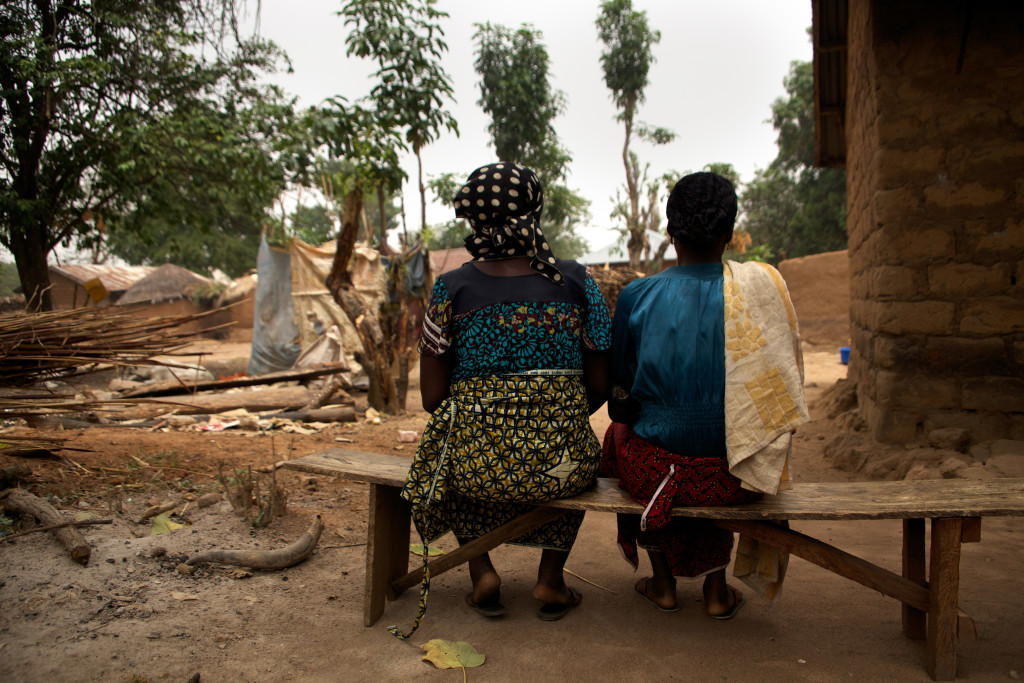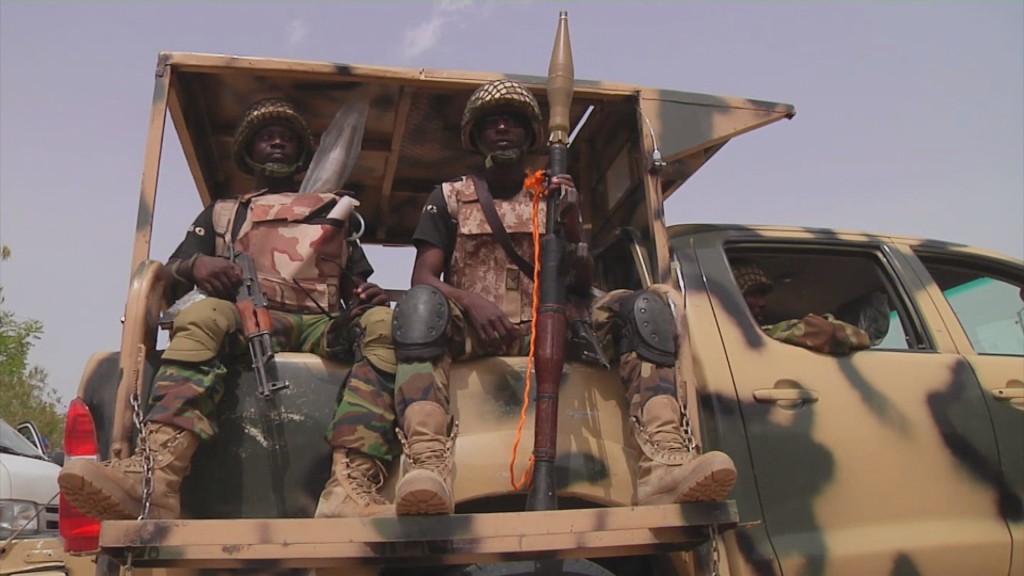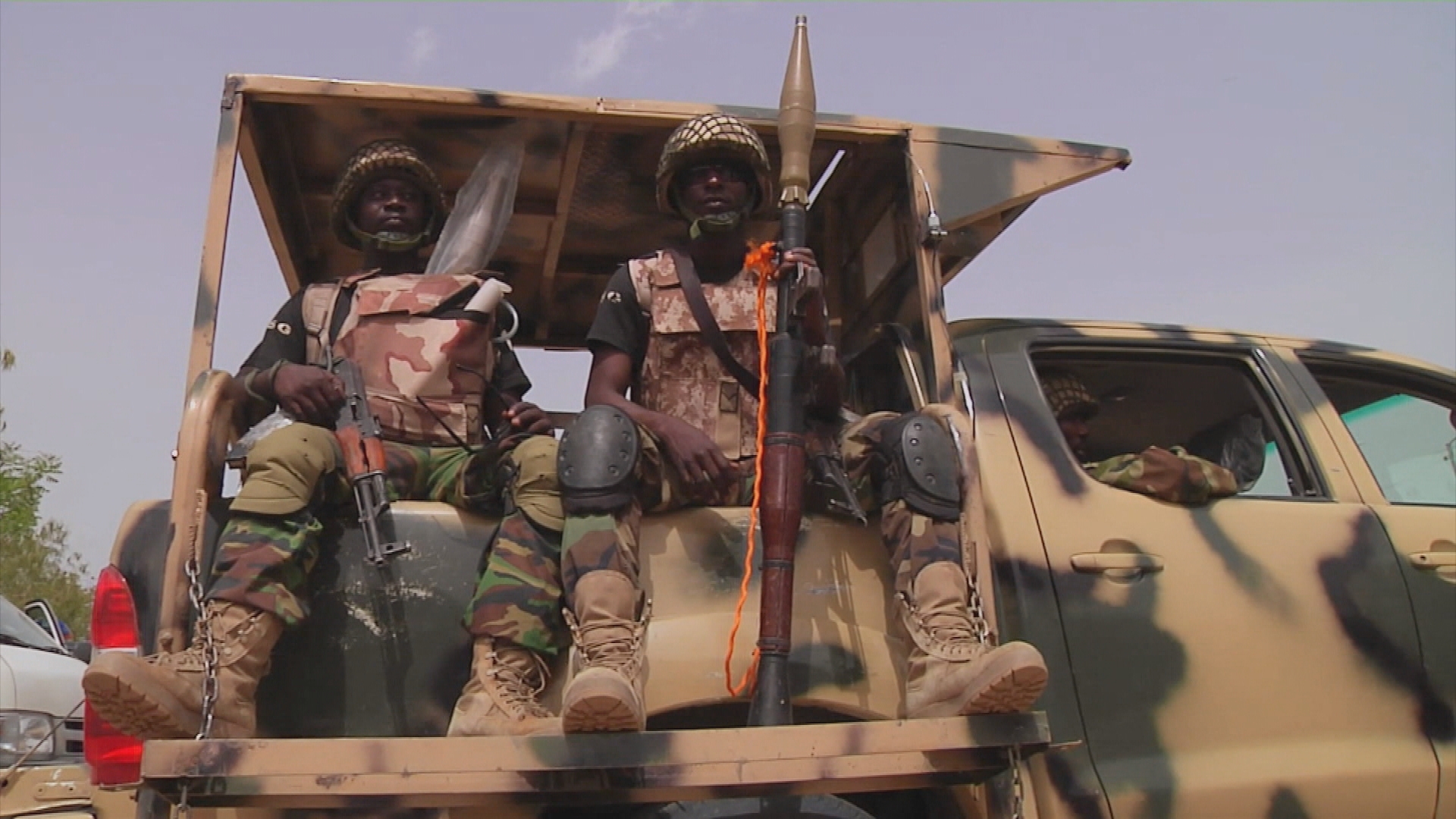Report: Boko Haram Has Abducted More Than 2,000 Since Start of ’14

April 14, 2015
Share
It is now one year since the militant group Boko Haram kidnapped 276 Nigerian schoolgirls from Chibok. Although it wasn’t the group’s first attack, the abduction made international headlines and spawned the hashtag –#BringBackOurGirls — increasing pressure on the Nigerian government to find the girls.
“We do not know if the Chibok girls can be rescued. Their whereabouts remain unknown,” said Muhammadu Buhari, the country’s president-elect, in a statement on Tuesday addressing the 219 girls that did not escape. “As much as I wish to, I cannot promise that we can find them.”
The world may not know where they are, but a grim report from Amnesty International this week offers a glimpse into the trials the kidnapped girls may be facing. The report was compiled through interviews with eyewitnesses and victims of Boko Haram’s atrocities, as well as Nigerian officials and human rights activists.
Amnesty was able to interview women who either lived in territory seized by Boko Haram or managed to escape after being abducted. Once in Boko Haram’s hands, women and girls (sometimes as young as 15) were often beaten, imprisoned, forced to convert to the group’s version of Islam, forced to marry, and raped — even though rape is forbidden under Sharia law.
A 48-year-old woman quoted in the report described how fighters visited one of her female lodgers in a Boko Haram-controlled town:
“Boko Haram fighters were coming openly to the house. Always to go to her. Sometime she is crying and said maybe my children are seeing what is happening. I think she may become pregnant. Sometimes we see condoms in our toilet, but many are not using. There is HIV, maybe it will become rampant. She can’t leave because when she leaves the Boko Haram will know, because her children are with her.”
In all, the report, found that the group may have abducted more than 2,000 women and girls since the beginning of 2014.
While girls face forced conversion and marriage to Boko Haram’s fighters, boys — if they aren’t immediately killed — are given the “choice” of joining Boko Haram or death.
Amnesty’s report highlighted at least one camp where abducted women were also trained as fighters. A 19-year-old woman who spent four months at a Boko Haram training camp in the state of Adamawa told Amnesty:
“They used to train girls how to shoot guns. I was among the girls trained to shoot. I was also trained how to use bombs and how to attack a village. They’ll dress us and demonstrate to us how to explode a bomb. This training went on for three weeks after we arrived. Then they started sending some of us to operations. I went on one operation to my own village.”
Boko Haram has killed more than 5,500 people from the beginning of 2014 until now, including slaughtering civilians during raids, and killing at least 817 people in bombings carried out in crowded marketplaces, bus stops and schools. Amnesty noted that the actual death toll is “likely to be much higher.” The group has also targeted politicians, civil servants and health workers — people it deems connected to the state’s secular authority.
A fighter who appears in a Boko Haram propaganda video believed to have been filmed last September says, “Our job is to kill, slaughter and shoot, because our promise between god and us is that we will not live with unbelievers. We are either in the grave and with unbelievers on the earth or unbelievers in the grave and us on the earth.”
Since his election in April, Buhari has vowed that his government would “spare no effort until we defeat terrorism.” In an op-ed in The New York Times on Tuesday, he expounded on those plans, saying his government would work more closely with its neighbors and accept military assistance from the United States. He wrote, “My government will first act to defeat [Boko Haram] militarily and then ensure that we provide the very education it despises to help our people help themselves.”
Related film: Hunting Boko Haram
FRONTLINE investigates Nigeria’s efforts to “Bring Back Our Girls” and fight Boko Haram.

Related Documentaries
Latest Documentaries
Related Stories
Related Stories
Explore
Policies
Teacher Center
Funding for FRONTLINE is provided through the support of PBS viewers and by the Corporation for Public Broadcasting, with major support from Ford Foundation. Additional funding is provided the Abrams Foundation, Park Foundation, John D. and Catherine T. MacArthur Foundation, Heising-Simons Foundation, and the FRONTLINE Trust, with major support from Jon and Jo Ann Hagler on behalf of the Jon L. Hagler Foundation, and additional support from Koo and Patricia Yuen. FRONTLINE is a registered trademark of WGBH Educational Foundation. Web Site Copyright ©1995-2025 WGBH Educational Foundation. PBS is a 501(c)(3) not-for-profit organization.





















